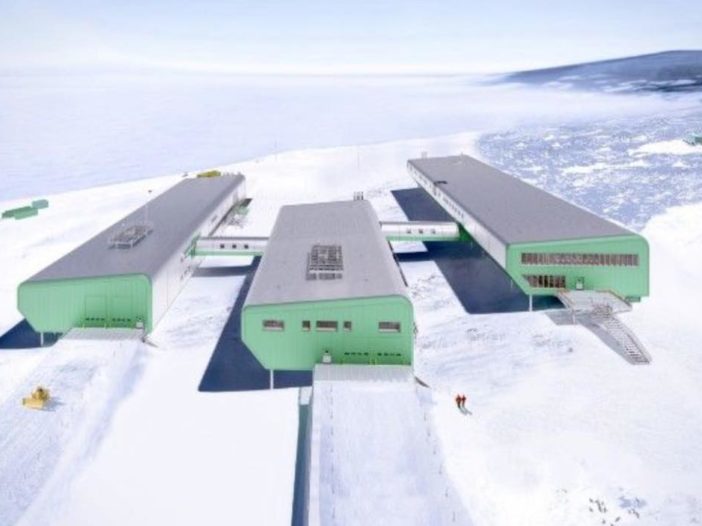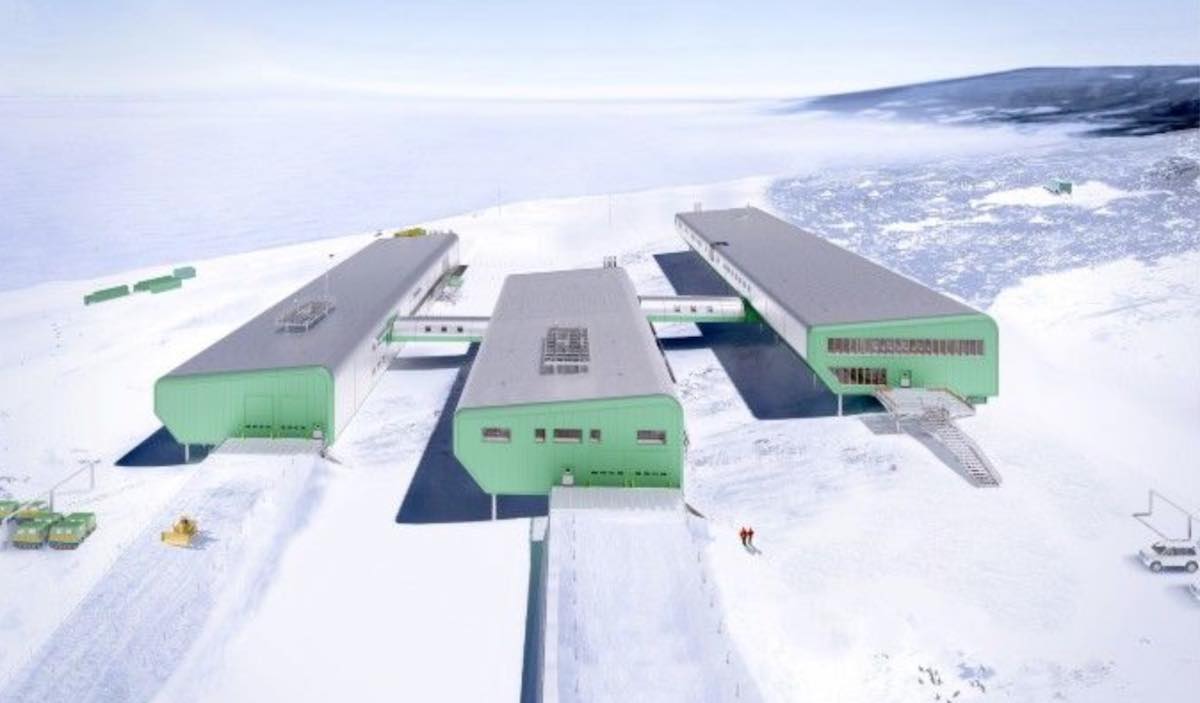
A New Zealand research base on Ross Island, Antarctica, could feasibly be powered by 100 per cent renewables using a combination of wind turbines, battery storage and smart controls, according to a plan proposed by Hydro Tasmania subsidiary, Entura.
Melbourne-based Entura was last year approached by Antarctica NZ to consult on options to both bolster the existing hybrid energy system at the Scott Base research facility – and then, later, to replace it entirely with a larger system, targeting “a very high quantum” of renewable energy.
Currently, the NZ research facility is powered by a wind-diesel hybrid energy system, which also supplies electricity to the US-run McMurdo Station with the two systems (50 Hz and 60 Hz) being connected through a frequency converter.
Entura says that its first task was to upgrade the Ross Island microgrid’s existing system, which currently consists of three 330kW wind turbines installed in 2010, a SCADA and hybrid control system and flywheel-based grid support system.
To this end, Entura developed solutions for upgrading the system to increase reliability and maximise the amount of usable wind generation, keeping costs to a minimum and using the current wind and diesel micrgrid as a base.
The recommended solution, delivered at the end of 2020, was to replace the flywheel and control system with a new 500kW battery energy storage system (BESS) and a modern microgrid control system (MCS) that would take over the roles of coordinating the diesels, wind turbines, frequency converter and BESS.
In the longer term, the plan is to replace the current system with additional wind energy generation capacity and more battery storage at the same time as a comprehensive redevelopment of Scott Base.
For the Scott Base Redevelopment project’s implementation business case, Entura developed options of around 3-4MW of new wind energy and a battery energy storage system of up to 10MWh capacity.
Using this mix, Entura said an “aspirational 100% renewable energy target for Scott Base [was] now looking feasible from a technical, environmental, and economic perspective.
“In the meantime, Entura is providing ongoing support to Antarctica New Zealand’s design and procurement for the SCADA and grid support upgrade project,” the company said.
As Entura notes, it was approached by Antarctica New Zealand based on its previous experience “implementing hybrid energy systems in harsh and remote locations where reliability is critical.”
Part of this previous experience includes Entura’s work converting a number of the inhabited islands of the Cook Islands archipelago in the South Pacific Ocean from mostly diesel power to solar and battery storage only.
Elsewhere, Entura has been engaged by the Asian Development Bank to investigate the feasibility of renewable energy projects aimed at helping Tonga and the Federated States of Micronesia achieve their own renewable energy targets.
In Australia, it is working on a practical atlas of pumped hydro energy storage opportunities for Tasmanian utility Hydro Tasmania, to support its “battery of the nation” program.

Sophie is editor of One Step Off The Grid and deputy editor of its sister site, Renew Economy. Sophie has been writing about clean energy for more than a decade.



